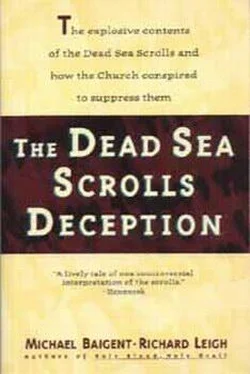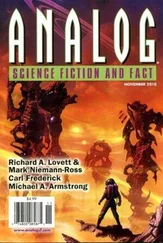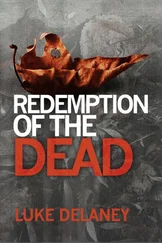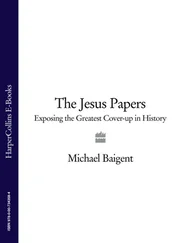Baigent then became somewhat more conciliatory, explaining the grounds for his concern. The ‘Oversight Committee’, he said, was potentially the best thing that had happened in the whole sorry saga of Dead Sea Scroll research. It offered, for the first time, a genuine possibility of breaking the log-jam, of transcending academic squabbles and ensuring the release of texts which should have been made public forty years ago. It had thus been profoundly disconcerting to hear that this unique opportunity might be squandered, and that the committee might be no more than a bureaucratic mechanism for maintaining the status quo. On the other hand, Baigent concluded, he had been reassured by his conversations with Professors Talmon and Greenfield, both of whom had expressed an unimpugnably sincere desire for the committee to be both active and effective. Mrs Sussman now hastened to concur with her colleagues. ‘We are very keen to get this moving,’ she affirmed. ‘We are searching for ways to do it. We want to get the whole project moving as fast as possible. ’25
Partly through the determination of Professors Talmon and Greenfield, partly through Mrs Sussman’s embarrassment, the ‘Oversight Committee’ had been galvanised into some sort of resolve. There remained, however, the disquieting question raised by Professor Talmon — whether it was technically and mechanically possible for Oxford University Press to produce the stipulated volumes in accordance with Strugnell’s timetable. Had the timetable perhaps been drawn up in full knowledge that it couldn’t conceivably be met? Might it perhaps have been just another tactic for delaying things, while at the same time absolving the international team of any blame?
On his return to the United Kingdom, Baigent telephoned Strugnell’s editor at Oxford University Press. Was the schedule, he asked, feasible? Could eighteen volumes of Discoveries in the Judaean Desert be produced between 1989 and 1996? If a blanch could be audible over the telephone, Baigent would have heard one. The prospect, Strugnell’s editor replied, ‘seems highly unlikely’. She reported that she’d just had a meeting with Strugnell. She’d also just had a fax on the matter from the Israeli Department of Antiquities. It was generally accepted, she said, that ‘the dates were very vague. Each date was taken with a pinch of salt. We couldn’t cope with more than two or three a year at the most.’ 26
Baigent reported that both the Department of Antiquities and the ‘Oversight Committee’ were worried about whether the timetable could be met. ‘They are right to be worried about the dates,’ the editor at OUP replied. 27She then expressed what sounded disturbingly like a desire to fob off the entire project. OUP, she said, felt no need to demand that the series be reserved wholly for themselves. Perhaps some other press — university or otherwise — might be interested in co-publication? She wasn’t even sure that OUP covered its costs on each volume.
During the last four months of 1990, developments pertaining to the international team and their monopoly began to occur with accelerating momentum. Criticism by scholars denied access to the Qumran material received increasing publicity and currency, and the Israeli government, it seems, was susceptible to the mounting pressure. This pressure was intensified by an article which appeared in November in Scientific American, fiercely castigating the delays and the general situation, and according independent scholars space in which to voice their grievances.
In mid-November, news broke that the Israeli government had appointed a Dead Sea Scroll scholar, Emmanuel Tov, to act as ‘joint editor-in-chief of the project to translate and publish the entire corpus of Qumran material. This appointment was apparently made without consulting the existing editor-in-chief, John Strugnell, who was reported to have opposed it. By that time, however, Strugnell was ill in hospital and not available for comment — or, it would seem, for any serious opposition. By that time, too, even his former colleagues, such as Frank Cross, were beginning to distance themselves from him and to criticise him publicly.
There were also other reasons for this sequence of events. Earlier in November, Strugnell, from his quarters at the Ecole Biblique, had given an interview to a journalist for Ha aretz, a leading Tel Aviv newspaper. The precise context of his remarks is not, at the moment, altogether clear; but the remarks themselves, as reported by the world’s press, were hardly calculated to endear him to the Israeli authorities — and display, for a man in his position, what can only be described as a flamboyant lack of tact. According to the New York Times of 12 December 1990, Strugnell — a Protestant convert to Catholicism — said of Judaism: ‘It’s a horrible religion. It’s a Christian heresy, and we deal with our heretics in different ways.’ Two days later, the Times contained more of Strugnell’s statement: ‘I think Judaism is a racist religion, something very primitive. What bothers me about Judaism is the very existence of Jews as a group…’ According to London’s Independent, Strugnell also said that the ‘solution’ — an ominous word — for Judaism was ‘mass conversion to Christianity’.
In themselves, of course, these comments had no direct relevance to the question of Dead Sea Scroll scholarship, to the withholding of Qumran material from other researchers and the procrastination in its release. But such comments could hardly have been expected to enhance the credibility of a man responsible for the translation and publication of ancient Judaic texts. Not surprisingly, a major scandal ensued. It was covered by British newspapers. It was a front-page item for newspapers in Israel, France and the United States. Strugnell’s former colleagues, as gracefully but as hastily as possible, endeavoured to disown him. By the middle of December, it was announced that he had been dismissed from his post — a decision in which, apparently, his former colleagues and the Israeli authorities had concurred. Delays in publication and problems of health were cited as factors contributing to his dismissal.
II. THE VATICAN’S REPRESENTATIVES
6. The Onslaught of Science
Until now, this book has referred to the ‘villains of the piece’ as ‘the international team’. In our conversations with them, however, Robert Eisenman and others would often allude to the Ecole Biblique, the French-Dominican archaeological school in Jerusalem. Indeed, the ‘international team’ and the Ecole Biblique were frequently used interchangeably; and Allegro, too, in his letters, would refer to the international team as the ‘Ecole Biblique gang’. We wondered why this association should constantly be made. Why were the international team and the Ecole Biblique treated as though they were the same thing? What was the relationship between them? Was it formally defined and delineated? Was the international team ‘officially’ an adjunct of the Ecole Biblique? Or was the overlap between them so great as to render any distinction superfluous? With some advice and pointers from Eisenman, we endeavoured to clarify the matter.
As we have noted, the international team, from its very beginnings, was dominated by Father de Vaux, then director of the Ecole Biblique, and by his close friend and disciple, the then Father Milik. As Allegro complained, both men would constantly arrogate first claim to all incoming texts: ‘All fragments are brought first to De V. or Milik, and… complete secrecy is kept over what they are till long after they have been studied by this group.’ 1Even Strugnell stated that when fresh material came in, Milik would invariably pounce on it, claiming it fell within the parameters of his own particular assignment. 2
Читать дальше












